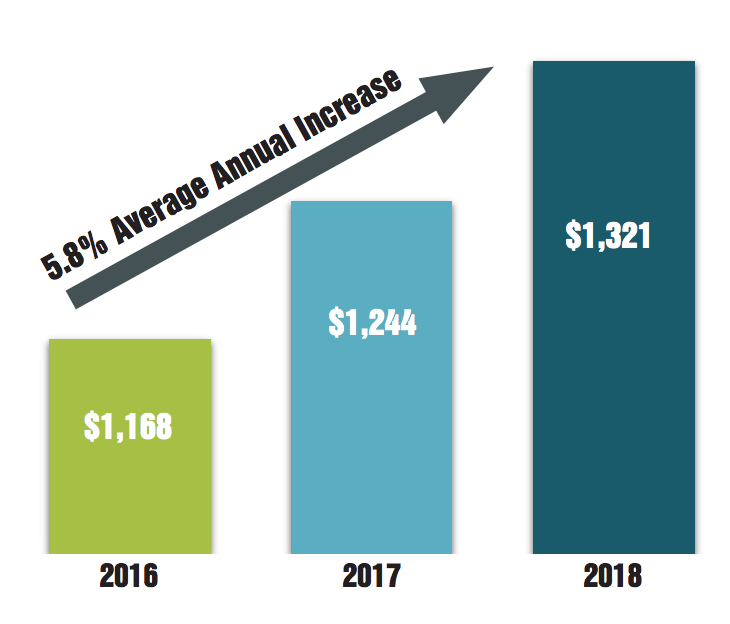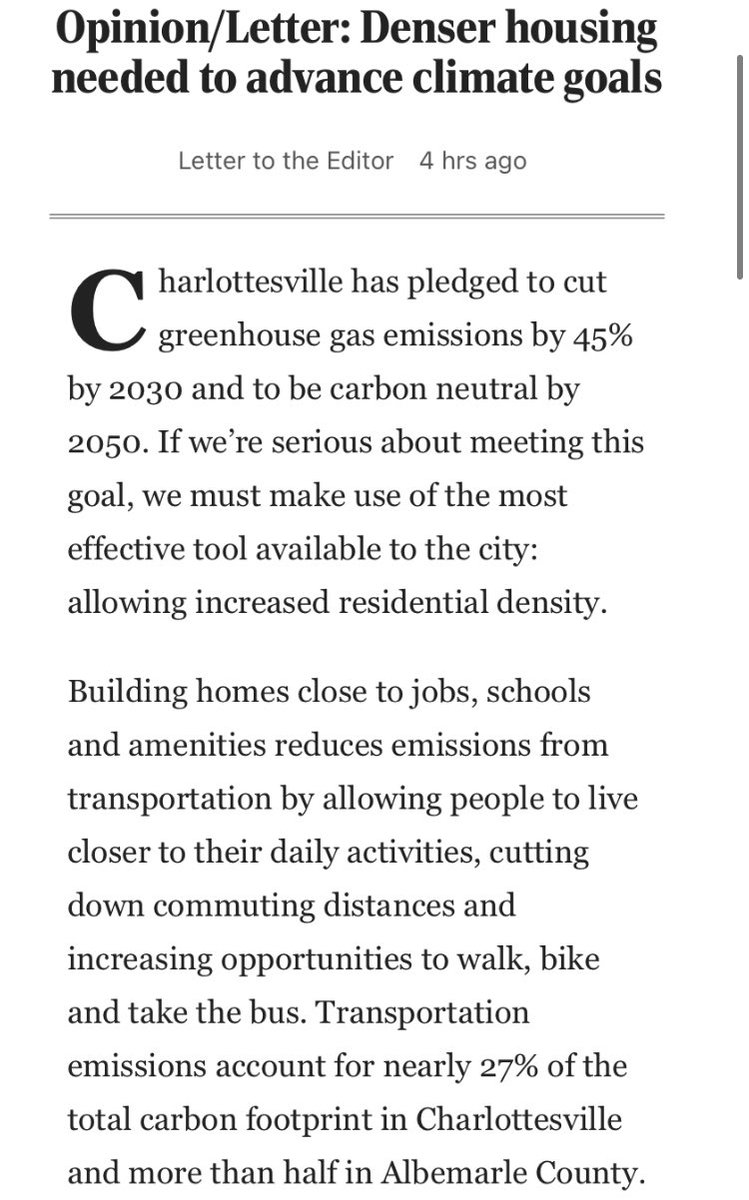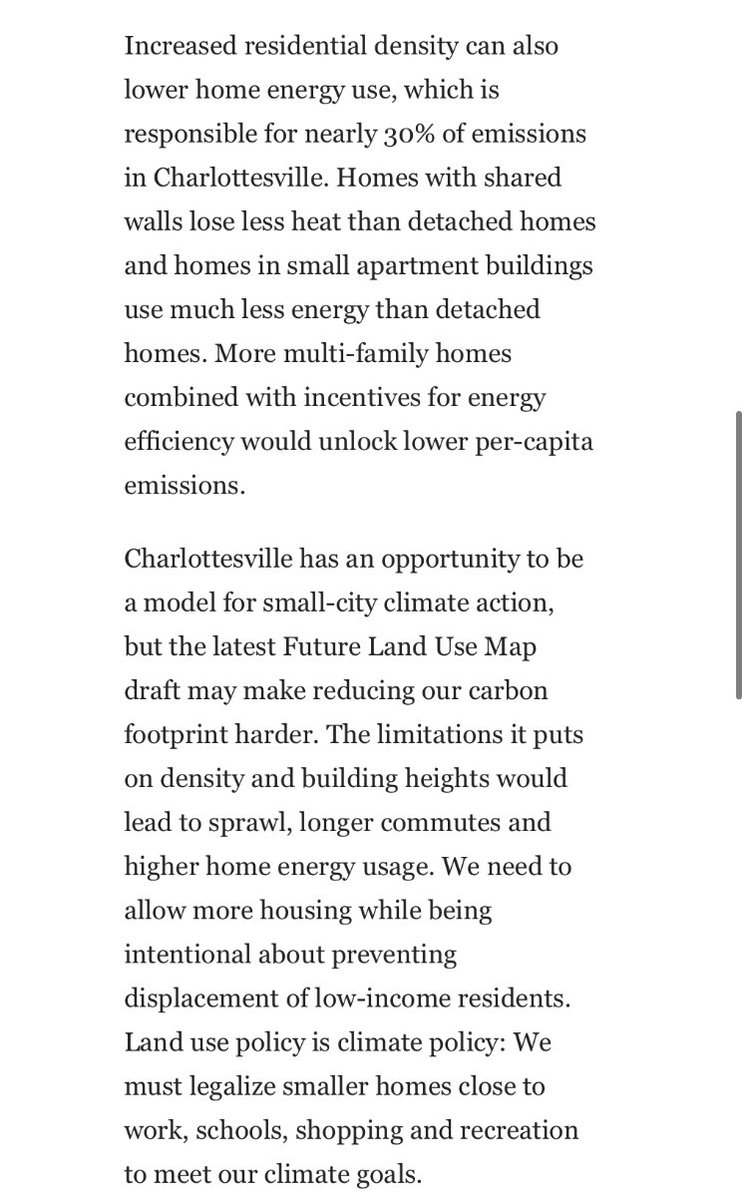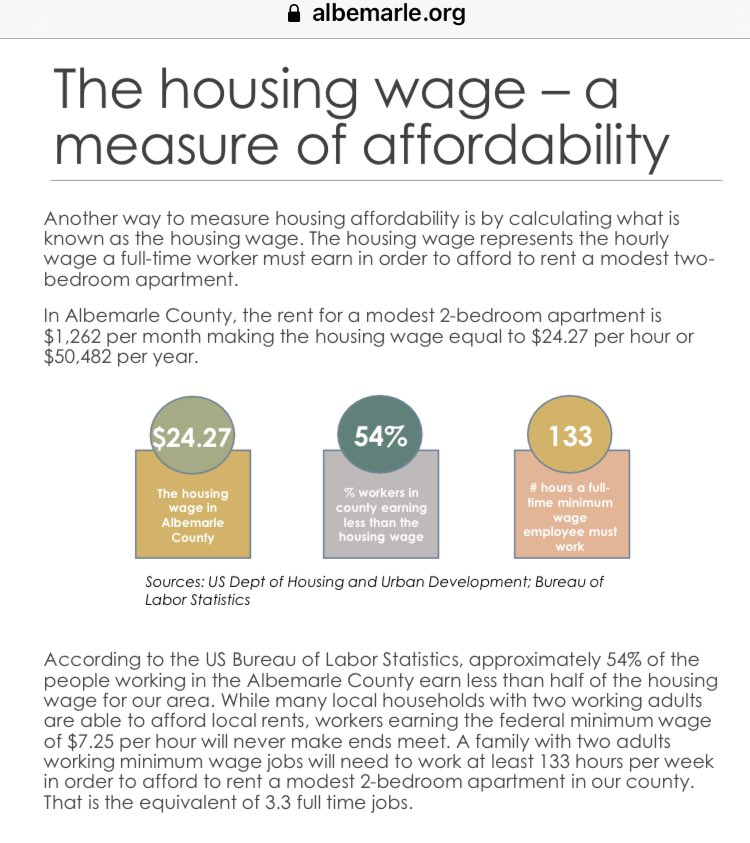People who care about their views more than their neighbors sometimes argue that there's no housing affordability crisis, despite all available evidence. Let's talk about some of that evidence!
Over 5000 households, or half of renters, are cost-burdened, meaning they spend >30% of their income on housing. Over 2700 households are extremely cost-burdened and spend >50% of their income on housing. 

Before the pandemic, rents were increasing at about 5.8% per year. And sale prices in R-1 zones have increased from $321000 in 2016 to $482000 this year. 



The median renter doesn't make enough to afford the median rental, and the affordability gap for renters without college degrees is growing. 

Why are prices rising so much? At least in part because we're adding jobs faster than homes. Since 2010, we've gained 11000 jobs (great!) but only built 2600 homes (not great!). 

Many cities have similar problems, but that doesn't mean we shouldn't tackle the affordability crisis in Charlottesville. There's a huge national housing shortage, and we all have to pitch in:
vox.com/22464801/housi…
vox.com/22464801/housi…

If you still think there's no affordability crisis here, try talking to your phlebotomist or your kid's teachers. Try talking to your barista or your neighbors who waited years for a housing voucher.
Charlottesville is turning into a gated community, and if you can't see that, maybe it's because you don't want to see it.
• • •
Missing some Tweet in this thread? You can try to
force a refresh















